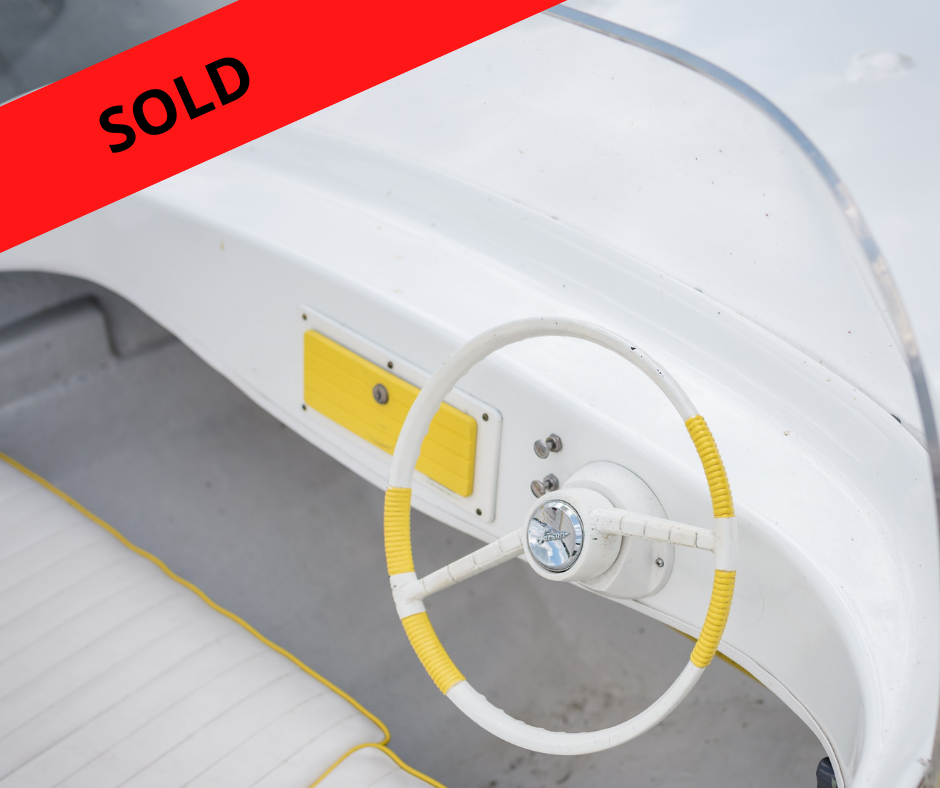Congratulations on the purchase of your boat! If you are a first-time boat-owner, you join the millions of people across the country enjoying the waterways. While heading straight to the boat launch is tempting, you must gather a few supplies. Some are required by law, and some are recommended for safety.
Personal Flotation Devices (PFD) or Life Jackets
Each passenger on a boat should wear or have immediate access to a PFD. Children need to wear them at all times. Ideally, each person should go to the store and try a variety of sizes and styles for comfort. The type of PFD should fit the activity you plan to engage in. PFDs are rated based on their ability to flip right-side up in the water.
Once you have your PFD, head out to shallow water and test how it performs. And remember, life jackets save lives, but only if you wear them.
Depending on the size of your boat, you may also be required to carry a throwable flotation device, such as a ring buoy on a long piece of rope. If a passenger goes overboard, this Type IV device can be thrown at them.
Boat Registration and Pleasure Craft Operator Card (PCOC)
Depending on where your boat is registered, you will need registration from the province or local authorities and a Pleasure Craft Operator Card. If you must place registration numbers or decals outside your vessel, ensure they are in the proper location.
Required documents need to be kept on board. Placing them in a waterproof pouch will keep them dry. If a law enforcement officer asks for your paperwork, make sure they are handy.
Fire Extinguishers
Boats and personal watercraft are required to carry fire extinguishers. Keep them near the engine, kitchen, and living areas. Marine types of fire extinguishers are rated B-1 and B-2, which are required depending on the length of your boat. Learn how to use them and periodically check to see if they are expired and charged.
Visual Signaling Devices
These can be flares, flags, lights, or a flashlight. There are devices designed for day or night use. If you are in trouble, you can use these devices to signal another vessel for help. Please keep them in a waterproof case and pay attention to their expiration dates. Read the directions and know how to use them.
A divers-down flag is needed if you plan on anchoring your boat and taking a tour underwater.
Sound Signaling Devices
A whistle, horn, or bell is used to call for help or warn people of danger. Learn what the sounds mean and when to use them. They are helpful in bad weather or if you need to get another vessel’s attention.
Bailing Device
If your boat starts to take on water due to a leak, waves, or rainstorm, keeping a bailing device or bucket on board for quick water removal is a good idea.
Oars or Paddles
In the event of engine problems, no wind (if you have a sailboat), or getting out of tricky spots, an oar or paddle will come in handy.
First Aid Kit
In case of minor scrapes, cuts, or small emergencies, a medical kit is a must. Start with a basic kit and add seasickness pills, aspirin, sunscreen, aloe vera, bug bite ointment, and anything else you might use regularly.
A VHF Radio or Cellphone
Cellphones are not always reliable. A VHF radio will allow you to call for help. They can also be used to get weather updates.
Emergency Food & Water
If you get pushed off course and can’t get back into the dock, energy bars and bottled water can give you the strength to pull through adverse conditions. Keep water in a small cooler to keep it cold.
Extra Clothing & Towels
In case of rain or a change in weather, bring along raingear, a change of clothing, or towels. Towels are great for keeping you warm, drying you off, wiping up spills, and more. Towels and a tarp can also protect you from the hot sun.
Boating Accessories
Here are a few more things to consider:
Waterskis, wakeboards, tow toys, floating devices, flippers, fishing poles, and snorkeling equipment – be sure to pack or store on board all of the extra stuff you need to have fun in the sun and the water.
Waterproof bags are useful for keeping clothing and other items dry.
If you intend on docking your boat in the water or using a launch, you might need extra ropes, fenders, or docking equipment.
Check the boating regulations in your area and the size of your vessel. Start with the required equipment and add extra items as you have room. Think about the number of passengers and the activities you have planned. Be prepared and have fun!
